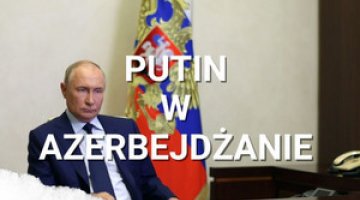The Nord Stream 2 financing agreements
On 24 April in Paris, Nord Stream 2 AG signed agreements with five Western European energy companies: Engie, OMV, Shell, Uniper and Wintershall regarding the financing of the Nord Stream 2 gas pipeline construction project. Nord Stream 2 AG is wholly owned by Gazprom. According to the company’s official announcement, half of the expenses linked to the gas pipeline construction (the total estimated value of which is currently 9.5 billion euros) will be financed by the Western European companies (950 million euros each). According to information provided by Shell, each of the companies is to provide Nord Stream 2 AG (most likely already this year) with a long-term funding facility of 285 million euros (30%). The remaining funds of up to 665 million euros (70%) will be made available by each of the companies in the future, depending on the investment decision taken by Nord Stream 2 AG. Gazprom will provide financing for the remaining 50% of the project implementation costs and will remain the sole shareholder of Nord Stream 2 AG.
Initially, the project was to be implemented by a consortium consisting of Gazprom (with a 50% stake) and Engie, OMV, Shell, Uniper and Wintershall (each with a 10% stake). However, after Poland’s Office of Competition and Consumer Protection (UOKiK) issued its objections in August 2016 concerning the negative impact on the competition of concertation resulting from the transaction involving Western European firms acquiring shares in the consortium, they refrained from formally acquiring the shares in Nord Stream 2 AG. This gave rise to months-long discussions between Gazprom and its Western European partners concerning the new model of co-operation and financing of the project.
According to information from Nord Stream 2 AG, implementation of the project is on schedule. The construction of the gas pipeline is expected to begin in 2018 and to be completed by the end of 2019.
Commentary
- The details of the financing agreements signed are largely unknown. According to some commentators quoted, for example, by Reuters, it cannot be ruled out that the details of Nord Stream 2 financing are still being developed. It is unknown, for example, what benefits the European companies might get and whether they will have any legal guarantees and/or shares in the operation of the planned gas pipeline, and how this will be guaranteed. It is possible that they will enhance co-operation with Gazprom in other areas (such as Russian gas supplies). This could be surmised, for example, by the fact that Gazprom and Engie also signed a memorandum of understanding on 24 April. According to information from the specialist press, Germany’s Uniper in the agreement concerning the financing of the gas pipeline construction reserved the option of inviting an external partner who might take over part of the company’s financial obligations with regard to Nord Stream 2 AG.
- Although it has been announced that the Western European companies will pay half of the gas pipeline construction costs, according to reports from the Russian daily Kommersant (citing sources in the Western European firms), full financial responsibility for the implementation of the project will rest with Gazprom. Firstly, this is because it remains the sole shareholder of the project (Nord Stream 2 AG company), secondly, the funds which the European companies have undertaken to allocate to the project implementation will most likely have the form of short- and long-term loans and guarantees granted to Nord Stream 2 AG. According to comments appearing in some of the specialist media, however, it still cannot be ruled out that the financing scheme will be linked to companies acquiring bonds. In any case, the agreed scheme is expected to be less beneficial to Gazprom than the originally envisaged financing model or the one applied at the time of implementation of Nord Stream 1 (then 30% of the project implementation costs were covered by the companies’ own contributions, half of which was paid by Gazprom, and 70% was financed from external sources). This, then, would provide proof of the Russian side’s strong determination to carry through the project.
- It is very likely that Gazprom, despite the difficult financial situation, will be able to incur higher costs of the project owing to loans received from Russia itself and external funds by issuing Eurobonds (Gazprom has done this over the past year, for example, in March and November 2016 and in March 2017). However, the heavier financial burden linked to the implementation of Nord Stream 2 may entail limiting investments in other infrastructural projects being implemented by the Russian company (for example, the Power of Siberia gas pipeline running from Eastern Siberia to China).
- The European companies which have more or less intensively suggested over the past year that they would like to participate in the project present the agreements setting the rules of the gas pipeline’s financing as their success. These agreements are proof that they are still strongly interested in Nord Stream 2. This is essential for Gazprom and the gas pipeline’s European promoters, given the growing doubts in Europe as regards the project. The construction of the pipeline is particularly important to the German companies and Austria’s OMV, which hope that Nord Stream 2 will help them gain a competitive advantage over other European gas suppliers and will guarantee a route for transporting gas from the Siberian fields in which they are stakeholders.
- Even though the agreements have been signed, some issues still have to be clarified as regards the regulatory regime of the project, for example, whether it would be subject to European law and to what extent. To resolve legal uncertainties, the European Commission wants to receive a mandate from the European Council to negotiate the agreement with Russia concerning Nord Stream 2. According to some commentators, the fact that financial agreements have been signed with European companies may facilitate obtaining this mandate by the EC from the member states.
- The signing of the agreements also coincides with the discussion concerning Nord Stream 2 taking place in Denmark and Latvia – these two countries fear the consequences the possible implementation of this project may have for foreign and security policy. Their doubts reflect the fears shared by a number of other member states linked to the planned gas pipeline. The deals on co-financing the gas pipeline by the European companies and the published statements presenting its positive effects on the security of gas supplies in Europe may thus lead to a further polarisation of opinions inside the EU concerning Nord Stream 2, which will make it difficult to find a solution acceptable to everyone.




